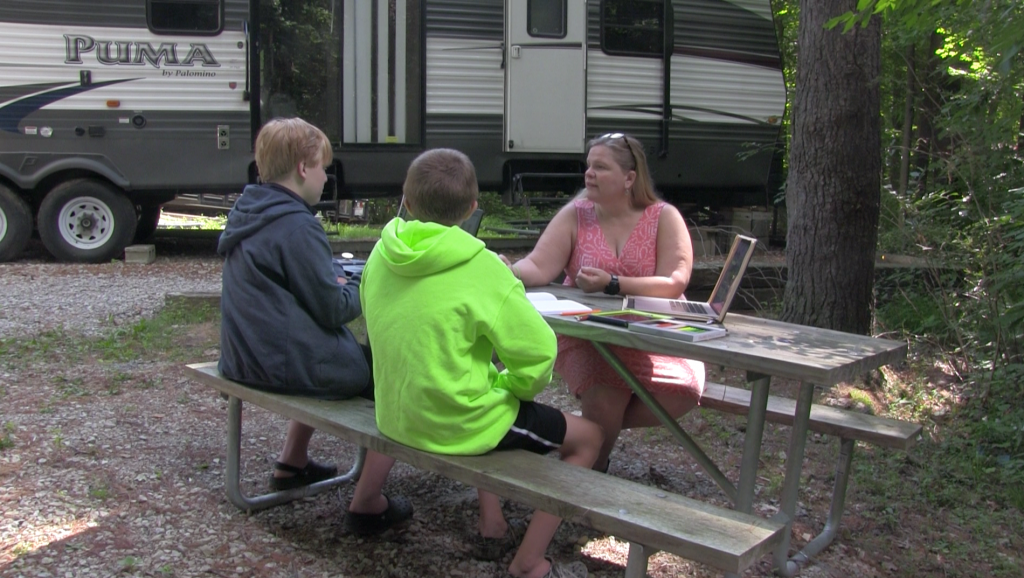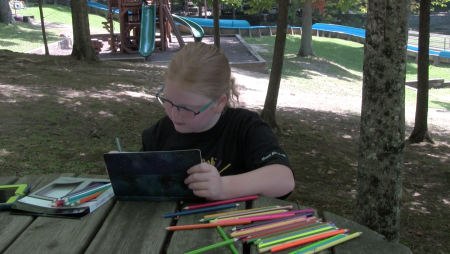
We asked our friends at HipHomeschoolMoms to share some of their top tips to make camping educational, so you can help your kids learn not only behind a screen but with hands-on educational opportunities.
- Look for family-friendly campgrounds such as Jellystone Park. They offer activities that entertain and educate kids, such as Bingo and arts and crafts, which supplement planned learning. They also provide socialization opportunities that are needed with classrooms closed and homeschool field trips and other activities on hold. If this is your first camping trip or first one in a while (or in a pandemic), please check out our “Top Tips for New Campers” and link to our other blog post from June: https://www.campjellystone.com/top-tips/
- Involve the kids in planning and managing the trip. Part of the learning experience is allowing kids to help with researching campgrounds, setting the budget for the trip, and buying necessary supplies. And once you’re at the campground, let the kids help take care of the RV or cabin. They love responsibilities like these because it makes them feel grown-up. These are life skills they will soon need.
- Check the campground’s Wi-Fi in advance. Call the campground to make sure it offers sufficient Internet access. If not, rent or buy a mobile hotspot to make sure you have enough bandwidth for online lessons, movie streaming and staying in touch with friends, family and work.
- Use online lessons and apps. Online lessons perfect for camping are widely available to help children study leaves, trees, rocks, flowers and wildlife. There also are apps designed for outdoor learning, as well as printable activities and games to take with you.
- Read and walk together. Camping provides the ideal environment to spend time as a family. Read aloud together, taking turns on different pages to help reluctant readers improve their skills. Or have the kids read independently and share what they learned. Scavenger hunts with printed or app-based guides encourage togetherness and learning.
- Visit local attractions. Many campgrounds are located near natural and historic sites. Consider stopping at some on the way to or from your campground. Museums and science centers can make for great day trips, especially on rainy days.
- Encourage your children to share what they learn. Kids love to tell stories, take pictures and produce videos. Have them record the weather, plants and animals they observe, and their activities. Journaling and scrapbooking also are great ways to get the most educational value from a trip and to preserve memories.
For more advice on educational camping and links to free lessons and guides visit: https://hiphomeschoolmoms.com/ways-to-make-camping-educational/


